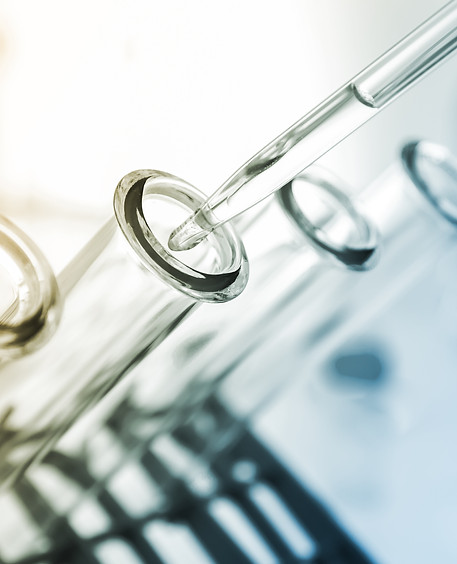
Programs
BIOLOGICAL &
CHEMICAL
DEFENSE
In collaboration with Defence Research and Development Canada (DRDC), Suffield Research Centre, we are developing a mesenchymal stromal cell (MSC) platform to protect and treat deployed warfighters and civilians against a range of war weapons, including biological and chemical agents. For example, direct injection of monoclonal antibodies (mAbs) is an important strategy to immediately protect the recipient from a pathogen. This prophylactic modality is critical during natural outbreaks, or following intentional release of bio-weapons. However, mAb recipients often require booster shots to maintain protection, which is expensive and impractical once first responders are deployed. We have demonstrated, for the first time, that MSCs are effective gene delivery vehicles that can significantly improve mAb-mediated immune protection against a lethal virus in a single, intramuscular (IM) dose of engineered cells. The full research article can be accessed here.
This cell-based delivery method can provide rapid and extended life-saving protection against exposure to biological threats, using a more practical, single-dose regime. We are currently developing an engineered MSC product to similarly confer protection against nerve poisoning.


COMBAT
CASUALTY
CARE
To address current capability gaps in military medical care, we are developing MSC- based products for several combat casualty care applications. Our most advanced product is a field-deployable cell-based wound treatment designed to equip first responders, for the first time, with the capability to mitigate the sequela of untreated burn wounds. We were recently awarded a DRDC contract to accelerate development of this prototype.
We are also developing a cellular therapy to augment wound healing and reduce fibrotic scar. This proprietary work is supported by the National Research Council's (NRC) Industrial Research Assistance Program (IRAP).
INFECTIOUS
DISEASE
MSCs are natural immune sensors, and can generate a highly specific immune-modulatory and/or regenerative response to physical wounds and to pathogens. We are currently characterizing the responsiveness and functional potency of MSCs to a range of inflammatory stimuli. We are particularly interested in fully characterizing the anti-bacterial properties of the MSC platform. Our ultimate goal is to engineer a novel treatment modality that synergistically combines the natural anti-bacterial benefits of MSCs with sustained in vivo delivery of anti-bacterial antibodies (see Biological & Chemical Defense) to achieve life-saving outcomes.


FIELDABLE
DELIVERY
METHODS
MSC are suitable for allogeneic transplant and are amenable to stock-piling. However, combat zones and mass casualty scenarios pose unique challenges for delivering cell therapies. We have established that intramuscular (IM) implantation, a field deployable administration route, potentiates extended survival time of the transplanted cells and facilitates rapid infusion of secreted cell products into circulation. Read the full research article here.
We are also developing cell-free derivatives in thermostable formulations that will equip first responders and deployed troops with the healing benefits of cell therapies outside the boundaries of the clinic.